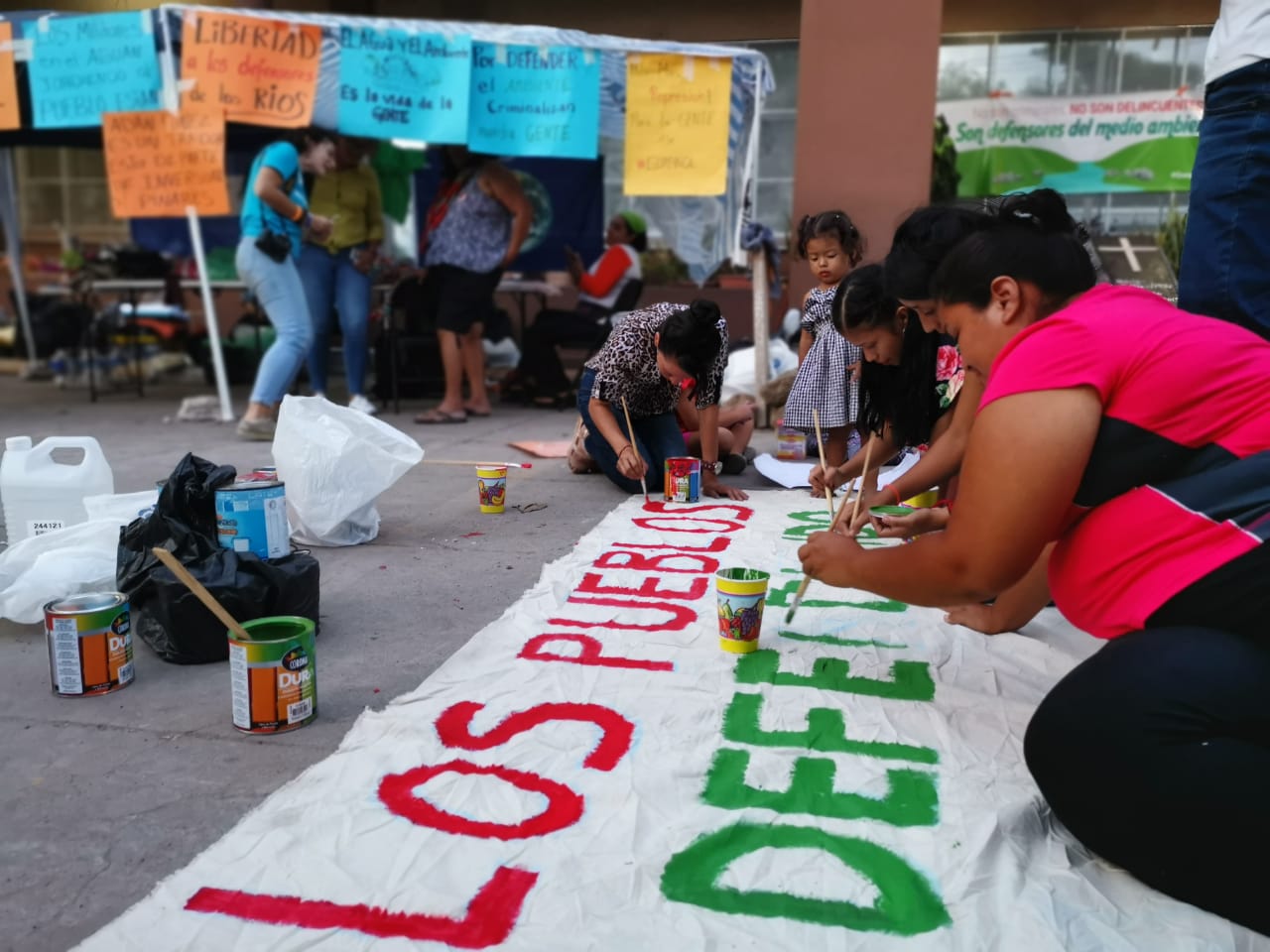 COVID-19 threatens the entire population globally, but puts the most vulnerable at greater risk, including prisoners in prisons, who, many times, cannot keep their distance due to the lack of space and the deplorable sanitary conditions they live in. This is the situation of seven environmental activists who have been held in preventive detention since last September at the Olanchito Penal Center, in the department of Yoro, Honduras, and another environmental defender who is in a prison in La Ceiba, in the department of Atlántida.
COVID-19 threatens the entire population globally, but puts the most vulnerable at greater risk, including prisoners in prisons, who, many times, cannot keep their distance due to the lack of space and the deplorable sanitary conditions they live in. This is the situation of seven environmental activists who have been held in preventive detention since last September at the Olanchito Penal Center, in the department of Yoro, Honduras, and another environmental defender who is in a prison in La Ceiba, in the department of Atlántida.
For the Honduran authorities, the eight activists are criminals who hinder the country's economic development. But according to their lawyers, they are citizens who defend fundamental rights such as the right to water. The conflict between the residents of the Guapinol community in the north of the country and Inversiones Los Pinares, a mining company, is prototypical for the situation in Honduras. For years, the community has been fighting against the opening of an iron oxide mine; they consider that the mine puts the natural resources of the area at risk. According to the residents, the contamination of local rivers already occurred during the previous works in the mine: the river are indispensable sources of water for their daily life and economic subsistence.
Confrontation between protesters and security guards
The conflict erupted in 2018, during a clash between a crowd of protesters who blocked the road to the mine and company security guards. According to Edy Tábora, one of the lawyers for the imprisoned activists, during the confrontation, a protester was injured, shot by a security guard, so protesters detained the security chief and handed him over to the police. On the same day, a car and two containers of the security guards were burned. "The Police received a complaint from the mother of the injured protester and another from the company," explains Tábora. "However, they decided to investigate only the burning of the company's assets and left aside the most serious fact, which was the shooting."
Activists are accused of aggravated arson and unfair deprivation of liberty of an employee of the security company. They deny the allegations. After having voluntarily presented themselves to the competent authorities at the end of August last year, they were sent to preventive detention. Since then, the families and the legal team of the activists try to revoke the measure. "In the initial hearing, the judge had the obligation to explain the reason why she was going to send them to preventive detention, but she did not do it," criticizes the lawyer Tábora. The legal team appealed the judge's decision and requested a new hearing to review the measure. In March, he filed a habeas corpus action with the president of the Supreme Court of Justice in order to correct the legal situation of the activists. "To date, all the appeals we have presented have not been resolved," regrets Tábora.
German MPs support activists' cause
In a letter to the Honduran Secretariat for Human Rights and other authorities in the Central American country, three German deputies from the Green and Left parties support the activists' cause. In the letter, they criticize that "the preventive detention of the eight defenders lacks legal grounds and constitutes an arbitrary measure contrary to international human rights standards and guarantees of due process." Furthermore, they warn that, "in the face of the current health crisis caused by COVID-19, defenders are at greater risk within the prison and it is extremely urgent that they be able to enjoy a substitute measure for preventive detention."
The Police or the military are part of the problem
With the letter, the German deputies follow up on a letter addressed to the Honduran authorities for the same case dated September 2019, in which they demanded the Honduran authorities to guarantee the defense of human rights in the country. On a visit to Honduras last year, some of the deputies met with representatives of the Honduran Secretariat for Human Rights. "They presented us with the protection mechanisms for human rights defenders," recalls Heike Hänsel, deputy from the The Left party and signatory to both letters. "However, when we spoke with some activists, we realized that these mechanisms do not work, since authorities such as the police or the military are often part of the problem."
The situation of human rights defenders is especially critical in Honduras. According to the NGO "Global Witness", between 2010 and 2017 alone, more than 120 people who fought in defense of the environment were killed. For some weeks, this risk has been added to the health crisis generated by COVID-19. Edy Tábora, a lawyer for the imprisoned activists, describes his conditions as very critical. "If the situation of calamity of the public health system for which we are in freedom is already serious, it is not necessary to explain the situation for those deprived of liberty who depend heavily on their relatives who are away for their food, medicine and water," Tabora warns. Visits, however, have been suspended due to the health crisis, leaving activists jailed at the mercy of prison authorities.
----------------------
*Translatated from: https://www.dw.com/es/diputados-alemanes-reclaman-justicia-para-activistas-medioambientales-hondure%C3%B1os/a-53118557
